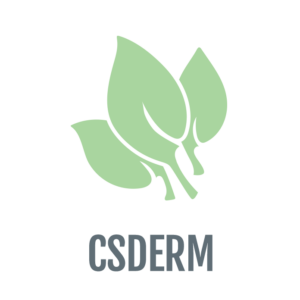You may have eczema if you have dry, itchy skin that sometimes bleeds. Also called atopic dermatitis, eczema is characterized by extremely dry, itchy skin. Patches of affected skin can become red and bleed, particularly if vigorous scratching has broken the skin. Though aggravating, the condition is not contagious and can be treated. Your doctor may prescribe several treatments, depending on the severity of your case and the area of skin affected. While mild cases can usually be treated with topical remedies and a unique mild skincare routine, more severe cases may require oral medications. Common in infants and young children, the condition may disappear by adulthood, sometimes later reappearing, usually on the hands.
For an effective treatment recommendation, schedule an appointment to see one of our medical dermatology specialists at Colorado Springs Dermatology Clinic, PC, in Colorado Springs, Pueblo, or Cañon City:

How can eczema be treated?
Treatment plans are individually tailored to each patient’s needs and may involve medicine, lifestyle changes, and special skin care. Simply changing skincare routines and making a few lifestyle changes may prevent flare-ups without medication. An overall plan of treatment can:
- reduce inflammation
- clear any infections
- loosen or remove scaly lesions
- prevent the formation of new lesions
- control itching
Why you should see a dermatologist
Treating eczema is vital for several reasons. Proper eczema treatment prescribed by a dermatologist can:
- prevent the condition from getting worse
- prevent the development of infection
- relieve pain and itching, and calm the skin
- prevent the skin from thickening
- lessen emotional stress
What medications are helpful for eczema?
In cases not sufficiently improved by skin care and lifestyle changes, your physician may recommend topical or oral medications.
Hydrocortisone
You may use an over-the-counter hydrocortisone cream for mild eczema, while more severe cases could require a prescription formulation.
Oral antihistamines
Over-the-counter antihistamines like diphenhydramine (Benadryl®), generally used for allergies, may help reduce symptoms. Some may cause drowsiness, so it’s best to look for a non-drowsy formulation unless you use the medication for nighttime itching.
Corticosteroids
In more resistant cases, corticosteroids may be recommended. These cortisone-like medications treat inflamed body areas, lessening redness, itching, swelling, and allergic reactions. As with all steroids, follow your doctor’s directions carefully when using these drugs.
Immunosuppressants
Often used after organ transplants, immunosuppressants suppress the immune system, slowing down the body’s natural defense system to prevent it from further damaging skin (in the case of eczema). Sometimes used in atopic dermatitis cases when other treatments have failed, immunosuppressants include cyclosporine, methotrexate, and azathioprine. These are strong medications, and the dosage regimens your doctor gives you should be strictly followed.
Immunomodulators
‘These topical creams are sometimes used to control inflammation and reduce immune system reactions in eczema cases that have proven resistant to other treatments. Elidel® and Protopic® are two of the most commonly prescribed. However, the FDA has put its strongest ‘black box’ risk warning on these drugs, recommending only short-term use on adults and children over the age of two. These topical creams are sometimes used to control inflammation and reduce immune system reactions in eczema cases that have proven resistant to other treatments. Elidel® and Protopic® are two of the most commonly prescribed. However, the FDA has put its strongest ‘black box’ risk warning on these drugs, recommending only short-term use on adults and children over the age of two.
Self care
The National Eczema Association recommends a special skincare regime designed to alleviate symptoms.
- Take lukewarm baths and short showers, as long or hot showers can dry out your skin.
- Use only non-drying, non-soap cleansers or mild soap.
- Afterward, gently pat the skin dry with a soft towel, ensuring not to rub the skin.
- Within three minutes, apply moisturizer to lock in moisture from bathing.
- Moisturize at least one other time each day.
- Wear cotton or soft fabrics clothing.
- Use a humidifier.
Lifestyle changes
You can make changes to your lifestyle that can reduce eczema outbreaks. Stress reduction is a huge help in reducing the number and severity of outbreaks. Exercise regularly is a great way to accomplish this while improving overall health and fitness.
Our dermatology clinic locations
We offer medical dermatology at four CSDERM locations:
Central Colorado Springs
170 Parkside Dr
Colorado Springs, CO 80910
Phone: (719) 471-1763
North Colorado Springs
2060 Briargate Pkwy, Ste 150
Colorado Springs, CO 80920
Phone: (719) 471-1763
Pueblo
406 North Main St
Pueblo, CO 81003
Phone: (719) 566-0176
Cañon City
1332 Bauer Ln
Cañon City, CO 81212
Phone: (719) 275-7485
